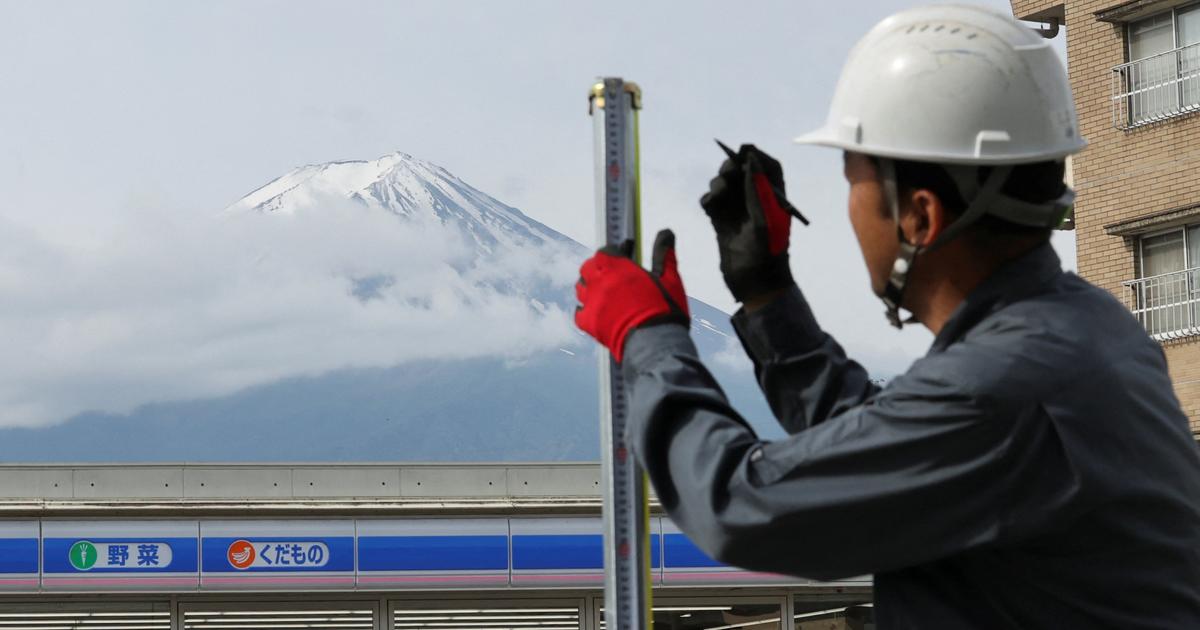Japan is confronting a new challenge as it grapples with the overwhelming influx of tourists. The town of Fujikawaguchiko has taken drastic measures to manage the behavior of visitors, who frequently disregard local rules. Recently, a tarpaulin was erected to obscure a popular view of Mount Fuji, a spot highly favored on social media. However, the canvas has already been vandalized, with around ten small holes having been drilled into it.
Local residents have raised numerous complaints about the behavior of tourists, who are often seen leaving trash on the ground, smoking in non-designated areas, crossing at red lights, and parking indiscriminately. In some cases, visitors have even climbed onto the rooftops of buildings to capture better photographs. To mitigate these issues, the municipality has employed a security guard to monitor the area during peak hours, though the damage to the screen occurred outside these times.
Despite the vandalism, city officials believe the screen has fulfilled its primary goal of reducing the crowd on the narrow sidewalk, which offers a unique view that juxtaposes Mount Fuji with a convenience store—an image that has become an emblem of contemporary Japan. The screen has somewhat deterred tourists from lingering, addressing the congestion and safety concerns.
Looking forward, the city plans to remove the barrier when the location becomes less frequented. Meanwhile, they intend to install QR codes on the barrier to direct tourists to other attractions in the area, including alternative vantage points for photographing Mount Fuji.
Japan is currently experiencing a surge in tourism, with monthly visitor numbers exceeding three million for the first time in both March and April. This influx is reminiscent of other global tourist destinations, such as Venice, which has introduced entry fees for day visitors due to similar challenges with overtourism.
In response to the increasing numbers, access to a popular hiking trail to Mount Fuji will become regulated from July to September, with a fee of about 12 euros and a cap at 4,000 people per day. Additionally, in Kyoto, the famous geisha district has closed certain alleys to the public to preserve the area's cultural integrity.
- Japan's record-breaking tourist numbers come as the country recovers from the previous health crisis. The nation is anticipated to welcome approximately 30 million tourists this year, further emphasizing the need for effective crowd management strategies to maintain both local and visitor satisfaction.
- More broadly, the struggle with overtourism is not unique to Japan. Cities worldwide are seeking solutions to balance tourism's economic benefits with the preservation of local culture and daily life.






